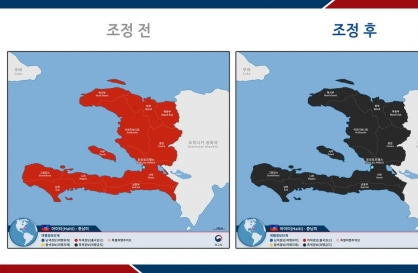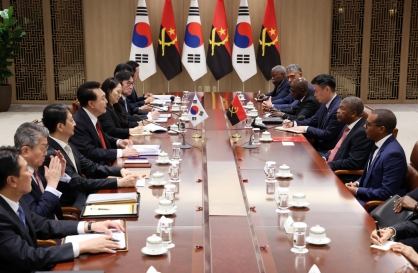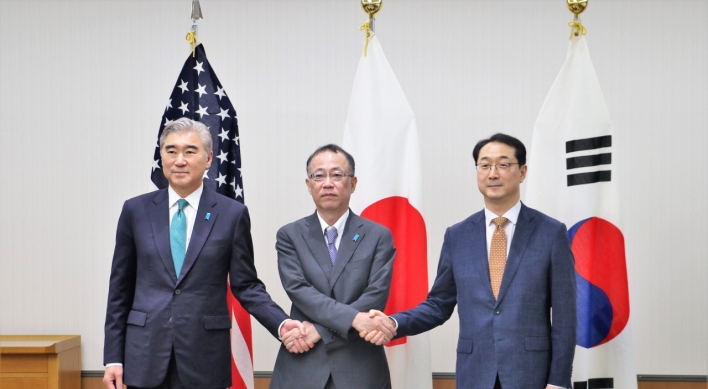Revised U.S. defense act urges tougher measures against N.K.
By Shin Hyon-heePublished : Dec. 24, 2012 - 20:22
The National Defense Authorization Act contains a raft of policy and funding packages including budgets for military activities, related construction and research and development programs.
Its 2013 version worth $633.3 billion requires the federal government to look into whether it needs to build a new missile defense base on the East Coast to better prepare for intercontinental ballistic missile development by the North and Iran.
Pyongyang’s Dec. 12 liftoff amounted to the test of a ballistic missile capable of carrying a 500-kilogram payload over 10,000 kilometers, Seoul’s Defense Ministry said Sunday after analyzing an oxidizer container recovered from the rocket’s first-stage splashdown site.
The estimated range covers all of Asia, up to Eastern Europe and western Africa, as well as a significant part of the U.S. western shore including San Francisco.
The regime insists it was a strictly scientific mission aimed at putting a weather satellite into orbit.

The NDAA resulted from months-long negotiations between Democrats and Republicans through the double-chamber legislature’s conference committee.
The Democrat-controlled Senate had resisted some hard-line proposals from the Republican-dominated House including the MD base plan due to uncertainty and budget pressure. It then appears to have sought a compromise after the North’s missile launch by watering down controversial provisions.
In May, the House Committee on Armed Services endorsed the base project and a much-debated redeployment of tactical nuclear weapons on the Korean Peninsula. It allotted $100 million for studying three candidate sites, aiming to complete construction by 2015.
“With increased threats posed by rogue states such as Iran and North Korea, it is so important that we pass the Defense Authorization Act.” Republican Sen. Kelly Ayotte said at a committee meeting early this month.
The passed package excludes the nuclear arms relocation clause. But it mandates congressional analyses on the U.S. military’s overall readiness and strength and the feasibility of the current strategies.
It also reflects a Republican call for reports on the U.S. strategic and intelligence capabilities to deter potential threats from Pyongyang, Beijing and Tehran.
“(The outcome) watered down or eliminated most of the objectionable House nuclear provisions, usually substituting certification requirements or reports,” said Kingston Reif and Laicie Olson, senior analysts with the non-partisan Center for Arms Control and Non-Proliferation in Washington, after examining the conference report last week.
“Given the severe limitations of existing long-range defenses, rushing to develop a plan to deploy an additional defense site on the East Coast or elsewhere does not make technical or financial sense.”
Meanwhile, the U.S. government has eased regulations on exports of satellites and related components through the new NDAA amid growing industry complaints.
But trade bans hold out with North Korea, China and the so-called state sponsors of terrorism ― Iran, Syria, Cuba and Sudan. The North, which escaped the blacklist in 2008, remains categorized as “not cooperating fully” with U.S. antiterrorism efforts.
On Monday, China issued opposition the legislation’s endorsement of Japan’s control of disputed Senkaku or Diayou Islands in the East China Sea, and its approval for the sale of F-16 fighter jets to Taiwan.
“China is deeply concerned and firmly opposed to the contents concerning China in the 2013 Defense Authorization Act,” Foreign Ministry spokesperson Hua Chunying said in a statement.
She billed the Washington-Tokyo alliance as a “bilateral arrangement in a specific historical time,” saying the pact should not harm China’s interests or constitute an intervention in any territorial rows between third parties.
“They should do more to facilitate regional peace and stability, and help the stable growth of ties between China and the U.S. as well as the ones across the Taiwan Strait,” Hua added.
By Shin Hyon-hee (heeshin@heraldcorp.com)


















